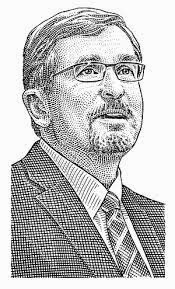My friend Jeff Durbin has written an insightful article on addition, its causes and cure, found here.
Monthly Archives: September 2014
Concerning the Person of Jesus Christ
 Dr. Joel R. Beeke is president and professor of systematic theology and homiletics at Puritan Reformed Theological Seminary, a pastor of the Heritage Netherlands Reformed Congregation in Grand Rapids, Michigan, editor of Banner of Sovereign Grace Truth, editorial director of Reformation Heritage Books, president of Inheritance Publishers, and vice-president of the Dutch Reformed Translation Society. He has written, co-authored, or edited seventy books.
Dr. Joel R. Beeke is president and professor of systematic theology and homiletics at Puritan Reformed Theological Seminary, a pastor of the Heritage Netherlands Reformed Congregation in Grand Rapids, Michigan, editor of Banner of Sovereign Grace Truth, editorial director of Reformation Heritage Books, president of Inheritance Publishers, and vice-president of the Dutch Reformed Translation Society. He has written, co-authored, or edited seventy books.
At his blog he writes:
Jesus Christ, Our God and Savior
The nature of Christ is one of the most fundamental aspects of the gospel message. Scripture teaches that within His one person Christ possessed both a divine and human nature. His divine nature has no beginning, being from eternity. His human nature began when Christ was conceived by the Holy Ghost in the virgin Mary.
For the believer, Christ’s divinity ensures that His sacrifice was sufficient. The ransom of a soul is costly—such a price is divine blood! The solution to the infinitude of sin was the infinite value of Christ’s obedience—infinite because of Christ’s divine nature. His sacrifice was of everlasting efficacy because He is the everlasting God.
Scripture presents many proofs of Christ’s divinity:
Scripture attests His divinity (Matt. 1:23; Phil. 2:5–11; Titus 2:13; Heb. 1:8).
God the Father attests Christ’s divinity (Matt. 3:17; 17:5; Mark 9:7; 2 Peter 1:17).
Christ Himself claims divinity. He claims to be one with the Father (John 10:30, 38) as the Son of God (Mark 14:61–62).
Various other persons testify that Jesus is God, such as Thomas (John 20:28); Peter (Matt. 16:16); Paul (Acts 9:5); and even devils (Matt. 8:29).
Jesus attests His transcendence over men and angels. He transcends Jonah and Solomon (Matt. 12:41ff; Luke 11:31ff), Moses and Elijah (Matt. 17:3; Mark 9:4), David (Mark 12:36), and John the Baptist (Matt. 11:11); and Christ is superior to angels, who are His servants (Matt. 4:11; Mark 1:13), His army (Matt. 26:53), and those who do His will (Matt. 16:27; 25:31; Mark 8:38).
Attributes of God are ascribed to Jesus, such as eternity (John 8:58), omnipotence (Rev. 1:8), omnipresence (John 1:48), omniscience (John 2:25), and immutability (Heb. 13:8).
He is given honor that is only given to God, such as divine baptism (Matt. 28:19), divine benediction (2 Cor. 13:14), divine worship (Heb. 1:6), and divine honor (John 5:23).
He performs divine tasks, such as forgiveness of sins (Mark 2:10–12), creation (John 1:3), providence (John 5:17), resurrection and judgment (John 5:22), preservation (John 10:28), and redemption and grace (Eph. 1:7).
He makes divine demands, such as faith in His person (John 14:1; 5:24; 6:40; 8:51) and supreme love (Matt. 10:37, 39; Luke 17:33). He accepts religious worship (Matt. 8:2; 9:18; 14:33; 15:25).
He is given the names of God: Mighty God and Everlasting Father (Isa. 9:6), the Lord our Righteousness (Jer. 23:6), Lord and God (John 20:28), God blessed forever (Rom. 9:5), Lord of all (Acts 10:36), and true God and eternal life (1 John 5:20).
There are five reasons why Christ must be truly God: Continue reading
